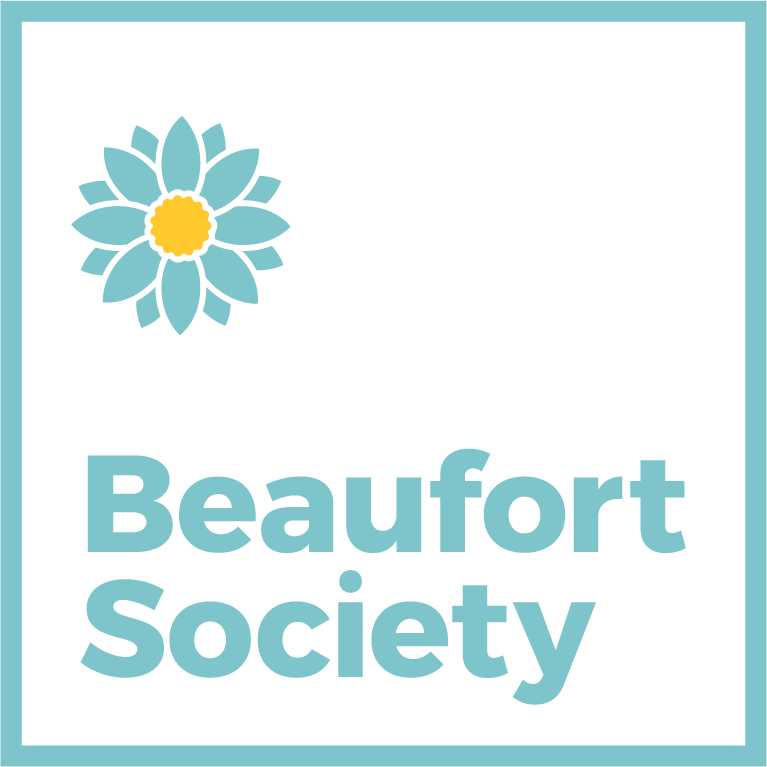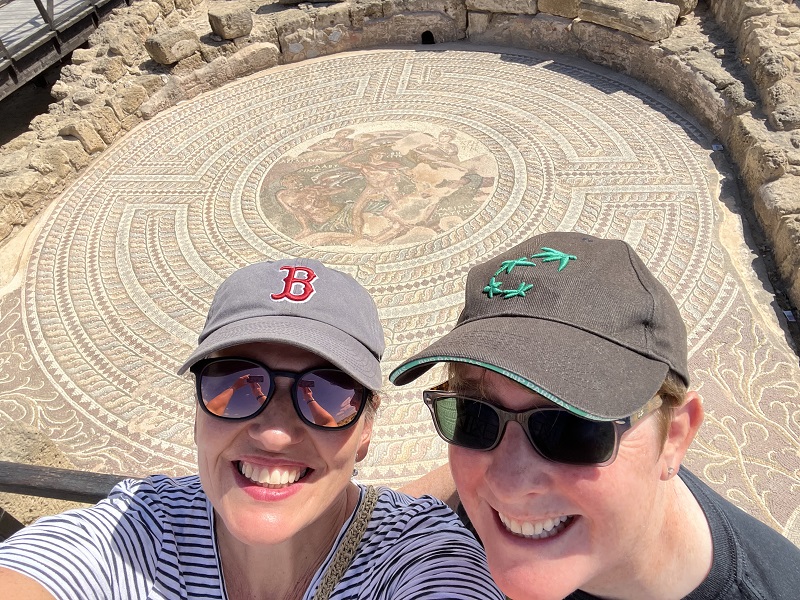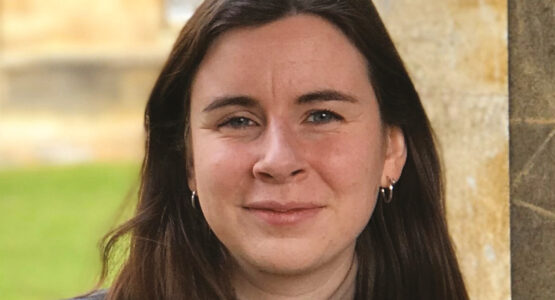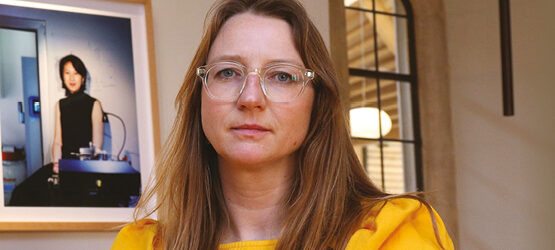
Nicola Horton (1987) read Classics at St John’s and initially embarked upon a career in publishing, before doing an MBA and switching to investment banking, where she carved out a niche advising on mergers and acquisitions within the media sector. Nicola’s wife, Tiffany Evans, studied Business Administration at Bath then pursued a career in arts marketing, eventually going freelance and specialising in the promotion of UK tours by contemporary dance companies.
Both now largely retired, Nicola and Tiffany enjoy travelling, skiing and the arts. Nicola has been a member of the Beaufort Society since its foundation in 2009. Tiffany initially came to the meetings as Nicola’s guest, but became a member in her own right in 2011.
Nicola: I was extremely fortunate to come to Cambridge when I did. In the late 1980s there were no tuition fees for UK-based students; there were means-tested student grants, and if you happened to have worked during a year out (as I did) before coming up to Cambridge, you could even claim unemployment benefit and income support during the summer holidays! While I was at Cambridge, the idea of student loans had started to be mooted, and I went on a number of marches and rallies to oppose their introduction, but had graduated before they became anything that would affect me.
In addition to what was available at that time to every student in every UK institution,
I benefited from being a member of St John’s, where previous members’ generosity meant that I was able to claim back half my expenditure on books (Latin and Greek original texts were not cheap!) and apply for travel grants that enabled me to attend the summer schools of both the British School at Athens and the British School at Rome at the ends of my first and second years, allowing me to put my studies of the ancient world into context.

I had none of the financial worries of the modern undergraduate. I didn’t have much money, but I didn’t have to consider working to support myself during term time. I didn’t have to worry about what career I might have on graduating or whether I would be able to repay my tuition fees and student loans. I was able to commit myself completely to studying something that I found interesting in and of itself, without being overly concerned about its vocational utility.
I realise that those times have gone, but I wanted to do my small part in allowing present-day students to experience some of that sense of freedom. So when I first drew up a will I decided to leave a legacy to St John’s, to continue in the tradition of those earlier benefactors whose munificence I had drawn upon. This was well before the establishment of the Beaufort Society but, because I had notified the College of the legacy, when the Society was formed I was invited to join as a founder member.
It is encouraging to see more and more people joining [the Beaufort Society] from matriculation years in the 1990s and 2000s
Nicola Horton (1987)
I hope my legacy will provide support to students from less well-off backgrounds, enabling them to partake fully in College and University life. As well as providing day-to-day financial assistance, I also hope it will fund some more of the fun stuff – travel abroad allied to study, and artistic endeavours.
I enjoy being part of the Beaufort Society and coming back to College for the annual lunch and tours of various parts of the College. It gives me a chance to keep up with College developments, discover things I never knew while I was there, meet up with old friends and even make new ones. Most people don’t get the chance to be thanked for their legacy in advance, but if you join the Beaufort Society you have the opportunity to be thanked for (hopefully) a number of years before your bequest is eventually handed over. The lunches are extremely good, and the wine selection superb: as far as return on investment is concerned, it definitely pays to join early.

When the Beaufort Society was first formed I think Tiffany and I were possibly the youngest people at the meetings, but it is encouraging to see more and more people joining from matriculation years in the 1990s and 2000s, and the continuation of the philanthropic imperative. They must have heard how good the wine is!
Tiffany: I didn’t study at St John’s, but from my very first Beaufort Society lunch I was fascinated by the ethos of belonging and collegiate responsibility: ‘Once a Johnian, always a Johnian’. Over the years I formed a connection with the College that I just didn’t have with my own alma mater, and as I learned more about various St John’s initiatives, particularly around ensuring that any student of merit, regardless of their financial circumstances, should be able to come to College, I wanted to support those endeavours. I therefore graduated from guest to member of the Beaufort Society in my own right, having promised a bequest to the College in my will.
There is an old saying ‘better to give with warm hands’, and I think the Beaufort Society is the perfect expression of that. Nicola and I can see how our bequests will ultimately be put to use, and can actively engage with the College in advance of leaving our legacies, while enjoying the fellowship and camaraderie that comes from the Society in the meantime.
To find out more about leaving a legacy to St John’s, please visit: johnian.joh.cam.ac.uk/legacy-giving
Written by
Nicola initially embarked upon a career in publishing, before doing an MBA and switching to investment banking, where she carved out a niche advising on mergers and acquisitions within the media sector. She and her wife, Tiffany Evans, are both active members of the Beaufort Society.






